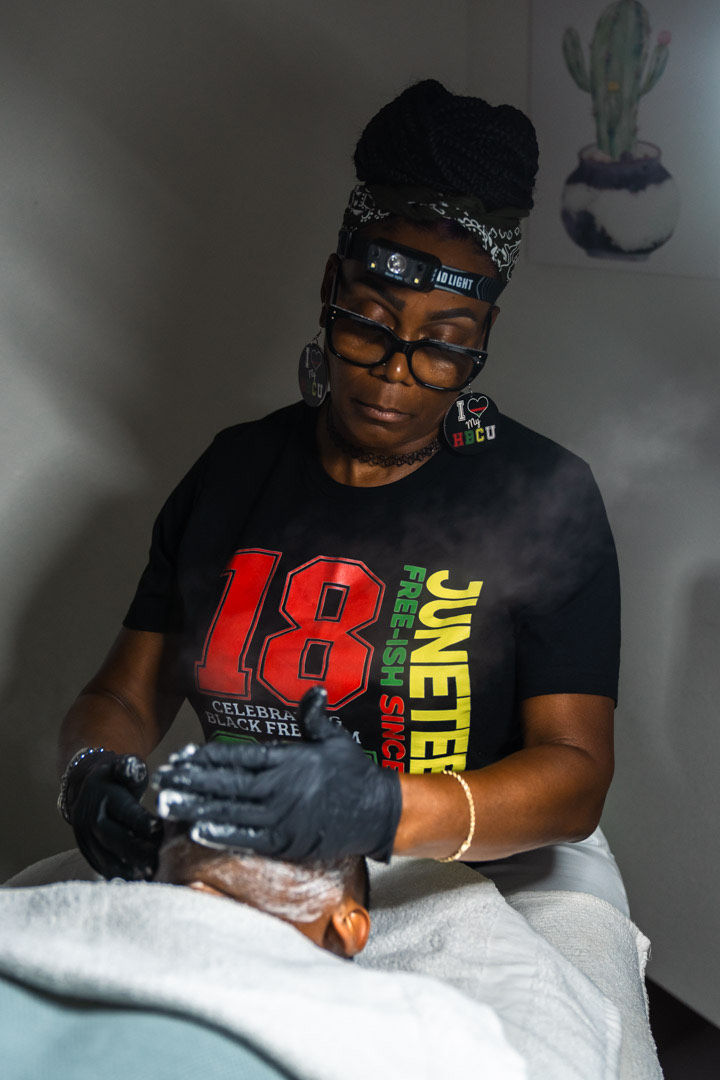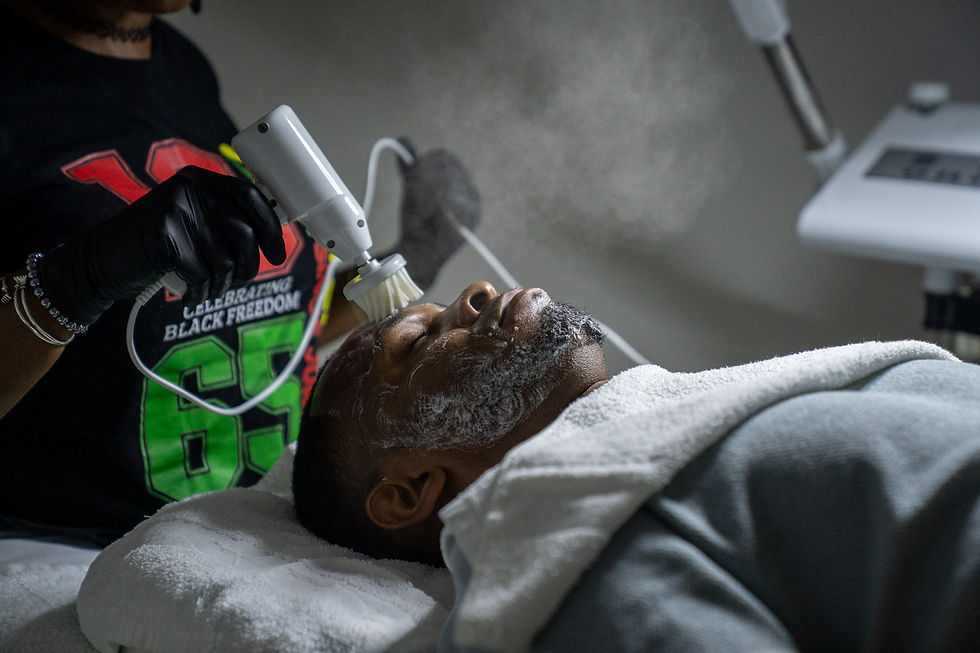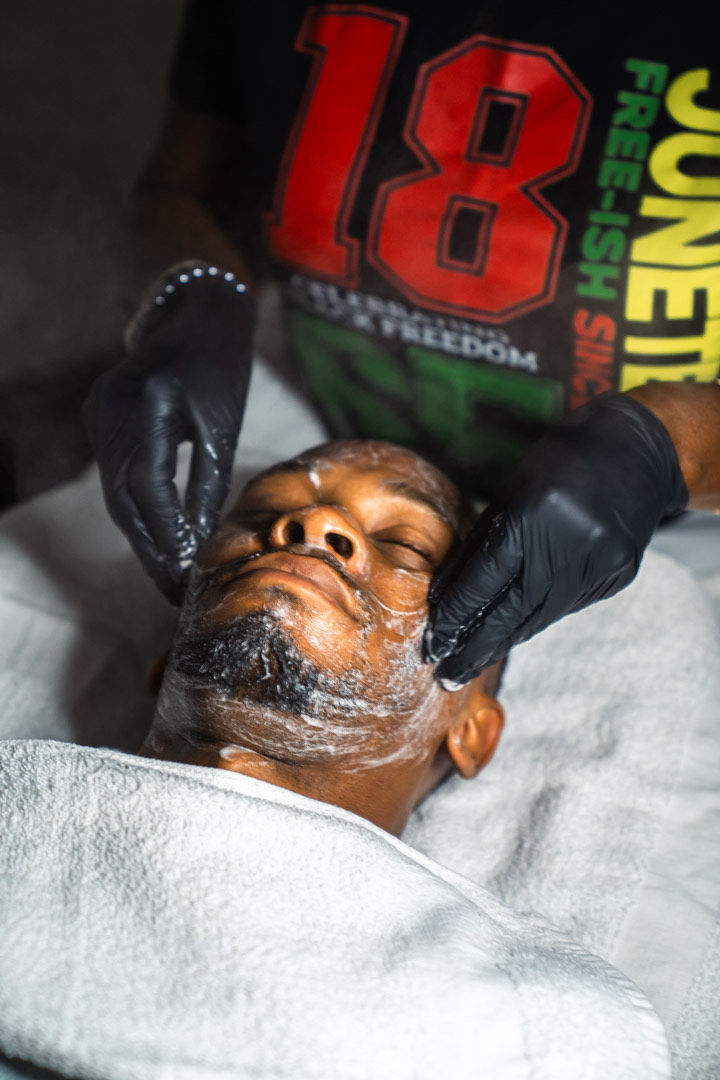Creativity and optimism serve as foundational pillars for a generation determined to redefine its place in the world. For this creative entrepreneur, creativity represents the power to make something out of nothing—to transform ideas into tangible reality. It is the force that allows individuals to step beyond outdated limitations and design lives and identities that truly align with who they are. Optimism works alongside creativity, providing the resilience needed to persist through adversity. Without optimism, creativity can stall; without overcoming hardship, greatness rarely has the opportunity to emerge.

Having faced significant trials—including teenage homelessness, dysfunctional family dynamics, depression, and prolonged instability—China learned early that adversity does not have to dictate outcomes. Rather than allowing circumstances to define her, she maintained a clear vision of an end goal far greater than what life initially presented. This mindset preserved not only her ambition, but character. Even during hardship, she remained grounded, positive, and open qualities that naturally drew the right people and opportunities into her life.
China attributes much of her growth to a core belief: what one puts into the world is what one receives in return. Guided by this principle, her creativity continued to expand across multiple disciplines, including graphic design, makeup artistry, comedy, trucking, and real estate. Each venture became an extension of resilience. Creativity did not exist despite adversity—it thrived because of it. Resilience kept her moving forward, and creativity became the mechanism through which reshaped circumstances.

At the heart of her philosophy lies a firm belief in equality. China maintains that all people are equal because all people possess the ability to imagine, hope, and create. Regardless of background or circumstance, every individual carries a spark of creativity and an inherent pull toward optimism. These shared traits serve as a reminder that everyone has the capacity to shape the world in meaningful ways.
Remaining creative, however, is not without its challenges. Life’s demands can easily overshadow inspiration, making creativity difficult to access. In those moments, focus becomes essential. Staying disciplined and keeping one’s eyes on the long-term vision can prevent stagnation. A lack of creativity often leads to diminished productivity and slowed progress, making persistence and clarity of purpose critical during difficult seasons.
Equality is not merely a personal value—it is a defining mission of her brand. China believes meaningful change begins with everyday actions. Treating others with respect, extending kindness, and leading with fairness are all fundamental expressions of equality. If one desires openness and acceptance, it is only right to offer the same in return.
China also emphasizes the role adults play in modeling equality for younger generations. Children learn far more from observation than instruction. When adults practice respect, challenge personal biases, listen to marginalized voices, and value differing perspectives, they create a living example of equality. Empathy, she believes, must be the standard. Through creativity and optimism, adults can intentionally make space for others and demonstrate what inclusive living looks like in practice.

Looking toward the future, she advocates strongly for strengthening school curricula with practical life skills—particularly financial literacy. China argues that financial education is one of the most essential tools for long-term stability and success, yet it remains absent from many households and classrooms. Introducing financial literacy early would equip future generations with the knowledge needed to make informed decisions and build sustainable lives.
Through creativity, optimism, and an unwavering commitment to equality, China's work reflects a broader vision: one where resilience fuels innovation, education empowers independence, and humanity is met with dignity at every level.
Elizabeth Hadnot on Faith,
Creativity, and the Power of Doing Things Differently.
There’s a quiet strength in women who build with purpose. Elizabeth
Hadnot is one of those women. A mother, a business owner, and a creative force, Elizabeth joins EvenRights to share how faith, optimism and thinking outside the box have shaped her journey. As we pause around Juneteenth, a moment in history where delayed freedom finally met Black resilience, Elizabeth’s story feels especially relevant. True freedom, she reminds us, is not just about breaking chains. It’s about what we build once we're free.

“I love the word creativity, especially for our generation,” Elizabeth says. “Being free to express one’s creative side and being hopeful that it’s all going to come together—that’s powerful.” That freedom to create on your own terms is a right not historically granted to everyone. But women like Elizabeth are reclaiming it, using creativity as both a strategy and a statement.
When asked how she’s overcome adversity in business, Elizabeth doesn’t hesitate: “I’ve overcome by prayer. Sitting still for the next level of God.” In a world that often demands non-stop hustle, Elizabeth reminds us that quiet reflection is not weakness, it is where clarity is born.
“Being characterized as equal is definitely not so,” Elizabeth says. “As humans, yes—we all have a creative side, and hopefully, that will be seen.” Running her business alone, she’s faced the pressure, the pivots, and the moments of doubt. But her advice is rooted in real encouragement: “Keep going. Don’t stop. Lean in. Connect with other like-minded entrepreneurs.” It’s this message of persistence that mirrors the spirit behind Juneteenth, not just freedom delayed, but dreams realized anyway.
When asked if her brand will promote equality and creative empowerment, her answer is simple: “Yes.” Elizabeth is proof that representation matters. That one voice can echo across a generation. And that optimism is not naive, it’s necessary.

EvenRights believes in building platforms for people like Elizabeth, people who don’t wait for permission to lead. We are constantly reminded that honoring the past means investing in futures like hers. Let’s move forward with creativity, with intention, and with the kind of faith that builds something lasting. Elizabeth’s journey shows that leadership looks different today. It’s soft yet strong, quiet yet impactful, and it's time we celebrate that. Her story is not just timely—it’s timeless.
Creativity isn't just a gift, but it is responsibility. For Elizabeth, it’s how she makes sense of the world, connects with her community, and envisions something better. Optimism fuels her forward when obstacles arise, reminding her that every challenge is a setup for something greater.
Elizabeth’s reliance on prayer is more than spiritual practice, it is her strategy. In the stillness, she finds answers, and in the waiting, she strengthens her vision. Her unwavering faith provides a solid foundation that grounds her decisions and gives her the strength to keep moving forward, no matter how uncertain the path.

True equality means equity in opportunity, access, and representation. As a solo entrepreneur, Elizabeth is aware of the gaps that still exist, especially for women of color. Yet instead of being discouraged, she uses her position to raise awareness and extend opportunities where she can, creating space for others to rise alongside her.
Her brand Royalty Bloo is more than a just a business, it’s a movement rooted in intention. Eliminating the negative sterotypes on mens self care and with every product and every message, Elizabeth is showing that values and visibility can coexist. She hopes her work will not only inspire others, but also activate them to believe in their own creative power.
Freedom is the ability to dream beyond your circumstances and act on those dreams without fear. Elizabeth’s journey is a declaration that no system, no stereotype, and no setback can silence a calling. By forging her own path, she challenges all of us to reimagine what’s possible for ourselves and our communities.
Let’s take a moment to uplift Black fathers, leaders, and providers. Not just the image often portrayed in nightlife or surface-level stereotypes—but the true essence: men who protect, nurture, guide, and serve. The vision of EvenRights is about more than justice—it’s about purifying the concept of living free from Black genocide, and stepping into leadership roles rooted in love, legacy, and empowerment.
Creativity, Optimism, and Fatherhood

As a community, it’s crucial that we multiply—not just in number, but in greatness. We need to raise strong, creative, and emotionally intelligent children. That begins with fathers who lead by example.
How important is creativity and optimism in all this? To me, it’s everything. Creativity and optimism aren’t just useful—they’re divine. God is the Creator. He is the ultimate Optimist. And He made us in His image.
With that mindset, we live in abundance. We move with faith, and we overcome obstacles not just by brute strength, but by vision and belief. The hurdles I’ve overcome in life weren’t defeated with money or power—but with God, my creative spirit, and my relentless optimism. These weren’t luxuries—they were survival tools.
The Lessons Found in Every Walk of Life
Even the greatest individuals study those society overlooks. We can all learn from those walking a different path—from people who have fallen and gotten back up, from those who live on the edge of society.
This mindset brings us back to Even Rights.
True equality isn’t found in status or wealth—it’s found in the universal human desire to love, to be loved, to feel seen, and to be respected. If we treat every person as deserving of that, we get closer to a world rooted in real equality.
Being Creativite in a Crisis takes a lot of tools of life we often forget to use.
Sometimes businesses fail because they lacked creativity. Other times, they fail because they didn’t have optimism when it was needed most. Life throws curveballs we don’t see coming. That’s when creativity and positivity are tested. But it’s also in those difficult moments that the most powerful ideas are born. I believe those seasons bring out our highest potential. If we stay rooted in creativity and optimism, the answers will find us.
The Heart of My Brand
I was asked if promoting creativity and optimism is something new for me. The truth? It’s always been the foundation of my brand.
How could it not be? Equality, empowerment, and inspiration are what I stand for—on and off the platform.
Reflections on Growth
Growth often comes from lessons we didn’t want to learn. Looking back, there are things I would have done differently:
I would’ve started documenting my journey earlier.
I wouldn’t have wasted energy on relationships that didn’t align with my
purpose.
I would have been more mindful of who I let into my inner circle.

At times as adluts we often feel that our way is best and that we can not learn from one another. However when trying to grow its important we seek knowladge from anywhere we can. If you’re trying to grow, consider this: Live like the younger version of you is watching every move. Ask yourself if that version would be proud of the decisions you’re making.
Rights, Responsibility, and Reform The Right to Bear Arms
EvenRights stands behind the right to protect yourself—even for certain reformed felons. Mistakes don’t make someone permanently unworthy of safety and dignity.
“As a father and a boyfriend, it’s my responsibility to protect my family with everything I have. I strongly support the right to bear arms.”
Support for Police and better Training, We respect and support the police who serve with honor. But respect also means accountability. Officers must be trained consistently—especially in communities of color—to see people, not threats. Training should be rooted in humanity, not stereotypes.
This isn’t optional—it’s essential.
Education and Representation, If we want to transform our school systems, we must hire more ethnic men as educators and mentors. Representation matters. Our youth need role models who look like them, speak to their experiences, and guide them with wisdom and love.
Private Prisons Must GoLastly, I’m proud to stand with EvenRights in our support for a bill to abolish private prisons.
“It’s heartbreaking that these institutions even exist. I absolutely support that bill.”
EvenRights is more than a message. It’s a movement. A mindset. A mirror held up to society asking, Are we truly equal yet? We can all be creative. We can all be optimistic. We can all learn from one another. And most of all—we can all do better.
Let’s live like it!





















